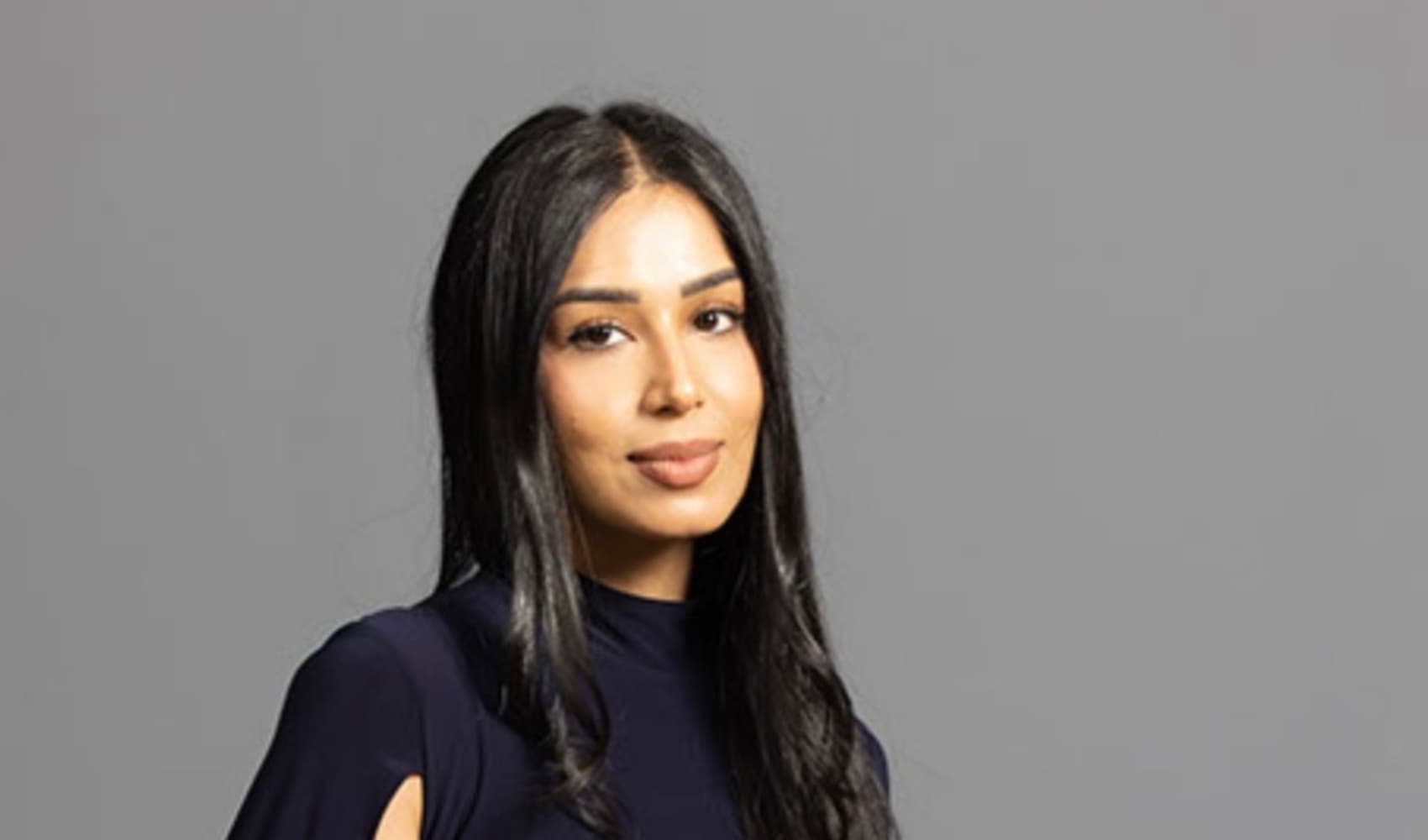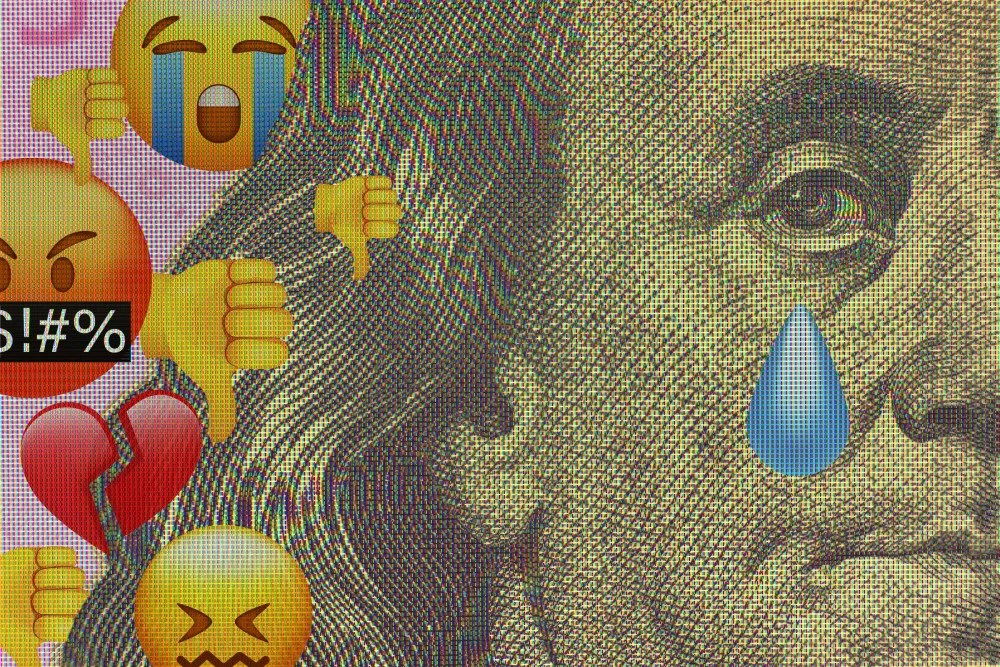
Eric Ou poses with fans at USC Village.
Social media, which was intended to be a digital space for users to create and share content through a social network, has now sprouted into a career opportunity for many creators.
The influencer market is projected to reach a record of approximately$33 billion U.S in 2025, according to Statista, a global data and business intelligence platform. And, likely due to the financial opportunities in the industry, 57 percent of Gen Zers surveyed in a 2023 Morning Consult study reported they would like to be an influencer.
Stream Los Angeles News for free, 24/7, wherever you are.
But with January's TikTok ban, some creators are uncertain about their livelihood and future on the apps and question whether content creation is as glamorous of a career path as portrayed online.
Get top local stories in Southern California delivered to you every morning with NBC LA's News Headlines newsletter.
Is the reward worth the risk?
Brooke Sabey, a former Youtuber, started her channel as a creative hobby. During the pandemic, her storytime videos began to thrive and she gained over 200,000 subscribers.
“Because of the pandemic I lost my full-time job offer,” Sabey said. “I was kind of scrambling but I was making a good amount of money off of Youtube so my parents supported me and told me I should just full-time that.”
But the pressure to stay consistent with posting quickly outweighed Sabey’s passion for creating.
“There was a combination of a lot of things that were going on and I really wanted to pull back from uploading but that was my main source of income so there was a lot of stress of forcing myself to do it,” Sabey said.
For Sabey, social media was a risky career path.
“You can always be de-platformed. I experienced that when my account on another platform was terminated, you can't really do anything,” Sabey said. “There is a lot out of your control but you can control your education and other things you are doing.”
Ultimately Sabey, who hasn't uploaded to her Youtube channel in two years, decided to search for a different creative outlet.
“I do a lot of UGC stuff. I help other brands and people build their own platforms,” Sabey said. “And I do a lot of other things like modeling now, just to pursue other passions.”
Sarah Gav, a multi-platform creator, also decided to step away from influencing when she said her time on social media started to take a toll on her mental health.
“I just felt really overwhelmed and to be honest, burned out,” Gav said. “That was ultimately what made me realize I should try something new, so I decided to apply for some jobs.”
Gav, now a YouTube manager at ManyChat, a chat marketing platform, said the nine to five lifestyle has allowed her to find a work-life balance, something she didn’t have as a full-time creator.
“When I really look at my life, I would say I am happier now. And the reason I say that is because I was constantly stressed,” Gav said. “I was working 24/7 because that was what I needed to do to pay the bills.
And the consistency of her corporate career has been the biggest perk of Gav’s transition.
“When I was a full-time creator and doing freelance social media management work, my paycheck would differ every single month,” Gav said. “I love the fact that I can have a consistent paycheck.”
Although some creators like Sabey and Gav are moving away from their platforms because of the inconsistency of the industry, some users said the reward is greater than the risk.
The new 9 to 5
Grace Xu, a lifestyle creator, ditched her full-time career in finance to pursue her passion of creating content on fashion and crocheting. Xu, who received her degree at The Wharton School, started posting to TikTok during the pandemic and eventually expanded to other platforms.
“I do think the longevity of it is concerning,” Xu said. “I have friends whose TikTok was their major platform, and with all that stuff about it, everything they built could just disappear. That’s why I really shifted more to YouTube.”
Although it may not have been the most financially responsible decision for Xu, she ultimately decided to follow her ideal career path, after pursuing it as a side hustle for nearly five years.
“It definitely financially would've made a lot more sense to stay. I think people assume I was at a point where I was raking it in.” Xu said. “I just started realizing that it was making me so unhappy in my corporate job because there was this very real other opportunity that I cared about investing time in.”
Xu believes the financial and longevity risk of content creation is worth it when compared to the lifestyle she lived during her nine to five.
“While it's not as glamorous as it probably looks, it is still an insane life with crazy opportunities that I am definitely very grateful for,” Xu said. “For me I didn’t really care for all the glamorous stuff.”
Similar to Xu, Katherine Mutchler, who was working five jobs including content creation to sustain her lifestyle in California, moved out of the state to fully pursue her online career.
“Since I have moved, I thought I need to simplify my life,” Mutchler said. “A lot of my content creation is fashion based, so with that I will do a brand deal but then I’ll also resell clothes online.”
Multcher said having multiple streams of income is the best way to keep a stable income.
“It was really eye opening [when TikTok got banned] that these are private companies and they have the power to up and delete your account.” Mutchler said. "Do other things on the internet that you can drive your followers to so you're not just reliant on one thing.”
Eric Ou, a short-form content creator and student at the University of Southern California, said he wasn’t concerned about the TikTok ban since he is a multiplatform creator.
“It wasn't something I was too worried about because I have a platform on Instagram that is now bigger than my TikTok platform,” Ou said.
But the financial inconsistency as a content creator is something Ou finds difficult.
“I think the tough part about social media is that you are never going to know where you're going to be within a year,” Ou said.
But there are also benefits to this form of income.
“What I do love about social media is that there is no real cap about how much you're going to make. You don’t have a boss that gives you a raise every single year, you give yourself a raise depending on how hard you work,” Ou said.
The influencer dream
Both former and current creators alike believe that even though there is a risk to content creation the influencer dream can be real.
“I definitely think it's real. I mean I definitely lived it,” Sabey said. “But I also think it is really difficult. I think definitely if that's the route you want to go down I don't recommend dropping out of school to pursue this.”
But to be successful the creators said the dream has to be driven by more than just monetary desires.
“If that's the reason you're doing it, you will probably be disappointed. I think if you want to be an influencer the dream has to be something else,” Xu said.
“If it's entirely driven by passion, what you want to do in life and what you're inspired by, I say why not,” Ou said. “What’s passion if you’re not chasing it?”



